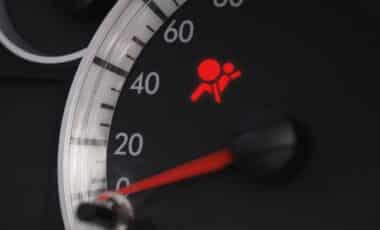Drivers of older cars are in for an unwelcome surprise as vehicle tax is set to soar in the spring of 2025. With many already reeling from the rising cost of living and soaring fuel prices, this new levy is just another hit to the wallet. But the real sting is for owners of older, less eco-friendly cars – and it’s not just a small increase.
A Focus on Older, Polluting Vehicles
The Vehicle Excise Duty (VED), or road tax, has been steadily climbing, and the latest changes will target mainly older, more polluting cars. This means that drivers of vehicles registered between 1984 and 2001 will feel the brunt of the hike.
Those driving cars with engines under 1549cc will see their annual tax rise by £10, which, while seemingly modest, will add up over time. But it’s the owners of bigger cars with more powerful engines who’ll face the real increase, with their tax bill shooting up by £15.
- Smaller vehicles (under 1549cc): Tax rises by £10, from £210 to £220 annually.
- Larger vehicles (over 1549cc): Tax jumps by £15, from £345 to £360 a year.
For those who’ve been clinging to their older cars to avoid the eye-watering prices of new models, this increase could prove to be the final straw.
What’s Behind the Hike: Economic or Political Play?
While the government blames inflation (RPI) for the increase, there’s growing suspicion that the move is part of a wider, politically-driven agenda to force drivers into more eco-friendly vehicles. The decision to include zero-emission cars in the taxation system, which will kick in from April 2025, is likely designed to push people into making the shift.
However, critics argue that this policy places a hefty financial burden on motorists who simply can’t afford to trade in their old bangers for shiny new electric cars.
By pointing to RPI inflation as the cause of these increases, it seems to have ignored the reality that many car owners aren’t in a position to fork out for new green vehicles. While it’s clear that the government is targeting the “poorer drivers” and those with older, less efficient cars, the practical implications are far more painful.
- The government’s insistence on reducing emissions seems to justify the tax hike.
- Zero-emission vehicles are now included in the VED, possibly as an incentive for motorists to switch to greener options.
But, let’s face it, for many Brits, upgrading to an electric car isn’t a realistic option. And so, this hike might not just be about fighting pollution; it could also be about the government balancing the books on the back of everyday drivers.
The Impact on Drivers: A Not-So-Modest Increase
For those with larger engines, the repeated increases in the VED are beginning to feel like a slap in the face. The £15 rise for cars with engines over 1549cc might not seem like much on its own. But when you factor in rising fuel prices, maintenance costs, and increased insurance premiums, this extra burden could be enough to make many think twice about whether their current motor is worth holding on to.
- Increase in tax: £15 more for vehicles with engines over, 1549cc.
- Add in the maintenance costs and insurance increases, and it’s no wonder some are feeling the pinch.
With the rising cost of living already squeezing Brits from every direction, this tax hike could make owning an older car feel like a financial gamble that many can’t afford to take.
A Lifeline for Older Cars? The Historic Exemption!
Currently, vehicles produced before 1984 are still exempt from this rise, thanks to a historic tax exemption. But let’s not get too comfortable. With this privilege only applying to a small percentage of cars still on the road, there’s a growing concern that this exemption will soon be scrapped. After all, if the government can hike taxes on more recent cars, why not those classic models, too? The question on everyone’s mind is: how long will this loophole last?
- Older vehicles registered before 1984 still get the tax break — for now.
- But scrapping the exemption in the future could make life even harder for classic car owners.
For now, owners of older cars may have a bit of relief, but it seems more likely that in the coming years, even this group will be dragged into the tax net.










I drive a 25 year old vauxhall, I am a pensioner and a stroke surviver. I use my car maybe once per week and in.average a total of 155 to 2000 miles per year. I’m already paying twice as much road tax than my.neighbors & my insurance is twice as much. I will not buy an electric vehicle as I don’t trust them!!
Hit the working class again. Lots of evs are company cars so won’t affect their drivers.
It’s seems the poorest in society will again pay the price.